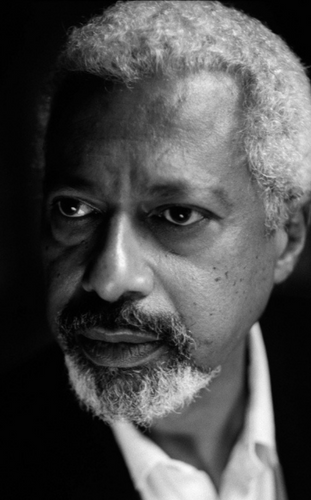The Nobel prize in Literature is awarded every year to an author from any country who has, in the words of Swedish industrialist Alfred Nobel’s will, “in the field of literature, produced the most outstanding work in an idealistic direction”.
History of Nobel Prize in Literature
In his last will and testament, Alfred Nobel specified that his funds be used to establish a number of awards for individuals who advance the “greatest benefit to mankind” in the fields of physics, chemistry, peace, physiology or medicine, and literature. Although Nobel made multiple wills during his lifetime, the final one was signed at the Swedish-Norwegian Club in Paris on November 27, 1895, just over a year before he passed away. Nobel left the five Nobel Prizes a total of 31 million Swedish kronor (US$198 million, €176 million in 2016), or 94% of his total estate.
The Norwegian Parliament, the Storting, did not accept the will until 26 April 1897 because of the level of scepticism that surrounded it. Ragnar Sohlman and Rudolf Lilljequist served as his executors, and they established the Nobel Foundation to manage his estate and oversee the awarding of prizes.
Nomination Process of Nobel Prize in Literature
The Swedish Academy solicits recommendations for potential winners of the Nobel Prize in Literature each year. One may be nominated by an Academy member, a member of a literary academy or society, a professor of literature or language, a former Nobel laureate in literature, or the head of a writers’ organisation. Nominating oneself is not permitted.
Each year, thousands of requests are sent, yet as of 2011, only about 220 proposals had been returned. These submissions must be submitted by the Academy by February 1 in order for the Nobel Committee, a working group of four to five Academy members, to review them. The committee reduces the number of applicants to about twenty by April.
The Academy approves a short list of five names before the end of May. The works of the five contenders are read and evaluated over the course of the following four months. The candidate who earns more than half of the votes is named the Nobel laureate in Literature when the Academy members vote in October. No one may win the prize until they appear on the list at least twice, which causes many authors to recur and undergo multiple reviews throughout time.
Nobel Prize Literature 2021 Winner
The Nobel Prize in Literature 2022 has not been awarded yet. It will be announced on Thursday 6 October. Abdulrazak Gurnah won the Nobel prize in Literature 2021 “for his uncompromising and compassionate penetration of the effects of colonialism and the fate of the refugee in the gulf between cultures and continents.” Born in Tanzania on December 20, 1948, Abdulrazak Gurnah is a British novelist and professor. His books include Desertion (2005), By the Sea (2001), which was longlisted for the Booker Prize and shortlisted for the Los Angeles Times Book Prize, and Paradise (1994), which was shortlisted for both the Booker and the Whitbread Prize.
Read: List of successful self-published authors who chose self-publishing
Nobel Prize in Literature is one of the most prestigious awards in literature. It is one of the five Nobel Prizes that Alfred Nobel created in his will in 1895. The Nobel Prize in Literature is generally given as the final prize at the ceremony. It has been given to 118 people as of 2021. Rudyard Kipling, who was 41 years old when he received the prize in 1907, was the youngest laureate. Doris Lessing, who aged 88 at the time of her award in 2007, was the prize’s oldest laureate.
BlueRose Publishers have an award called BlueRose Awards for the authors who publish with us. Regardless of their genre, language, or geographic location, the prize aspires to recognise significant literary luminaries in the world of literature. The goal of the BlueRose Book Awards is to honour authors who have consistently worked to improve society.
The goal of BlueRoseONE is to bring together under one roof the many true stories of well-known and up-and-coming authors. This area will provide readers and writers with a platform to explain and investigate the various shades of an author’s journey.

















